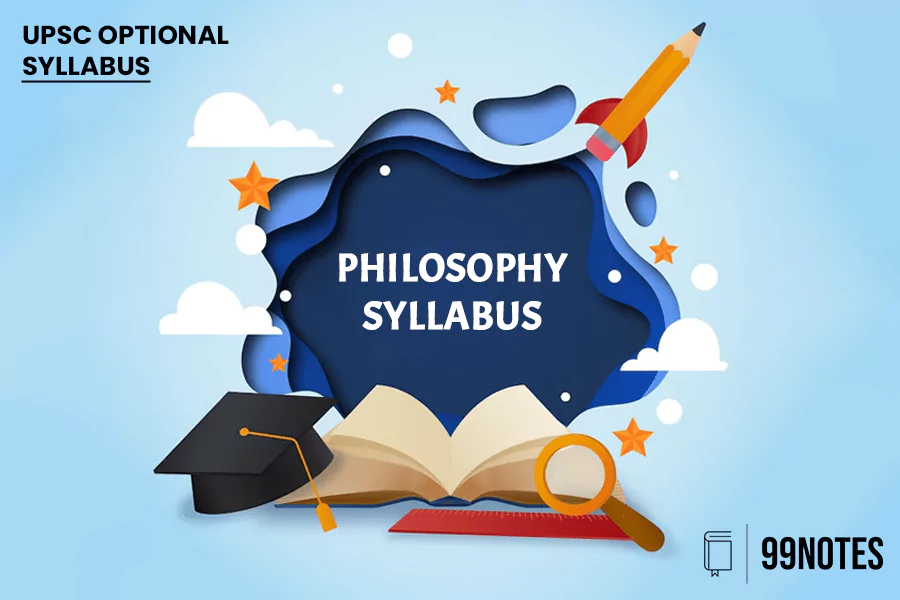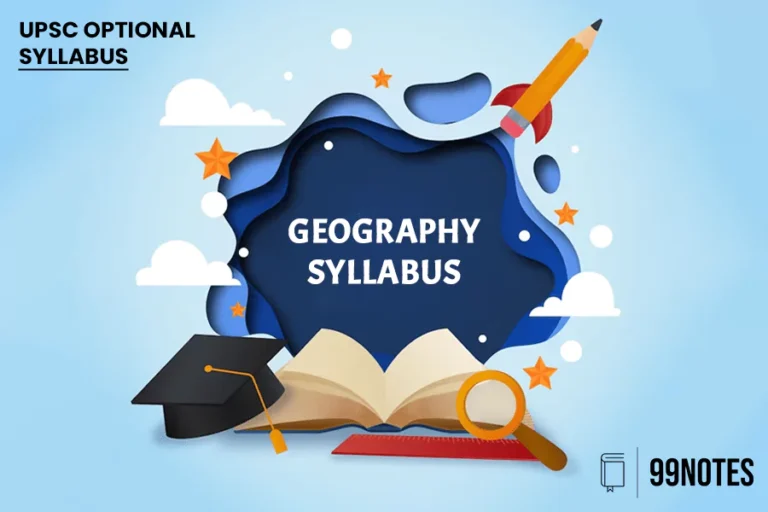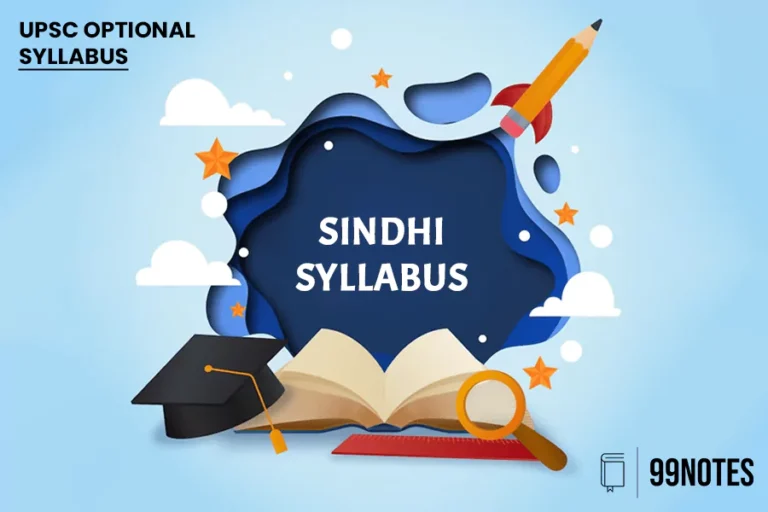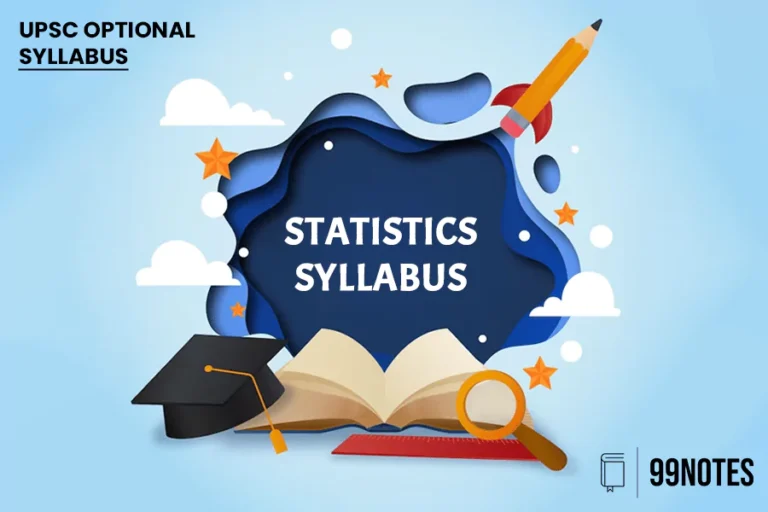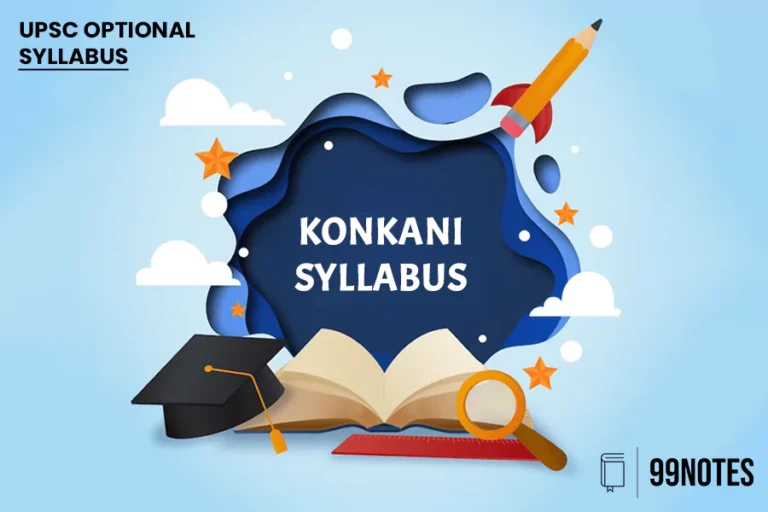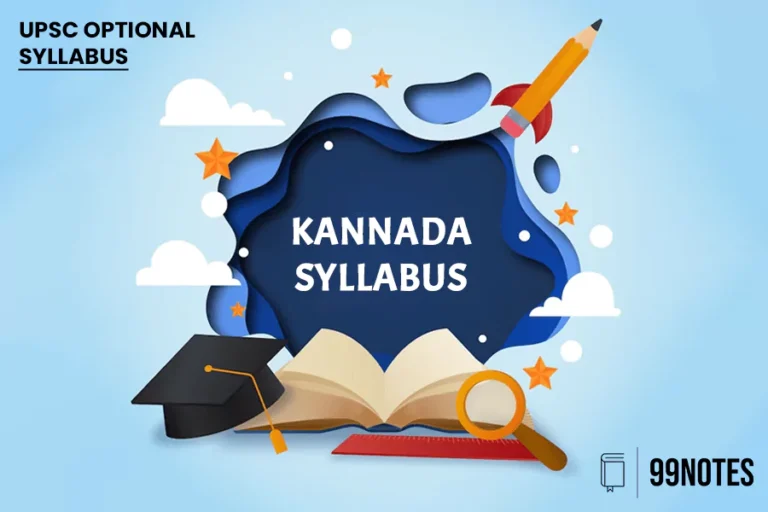UPSC Philosophy Optional Syllabus For CSE Mains 2024
UPSC Philosophy Optional Syllabus
➼ CLICK HERE TO DOWNLOAD- Philosophy Optional Syllabus pdf
The Philosophy optional syllabus for competitive exams like the UPSC is a comprehensive exploration of philosophical thought and inquiry. It spans the history of philosophy, Indian and Western philosophical traditions, ethics, socio-political philosophy, and philosophy of religion. This syllabus is designed to test candidates’ understanding of fundamental philosophical concepts, their ability to analyze different points of view, and to apply philosophical principles to real-world issues.
Philosophy Optional Syllabus Paper-I
{History and Problems of Philosophy}
Section A: Western Philosophy
-
-
- Plato and Aristotle: Ideas; Substance; Form and Matter; Causation; Actuality and Potentiality.
- Rationalism (Descartes, Spinoza, Leibniz): Cartesian Method and Certain Knowledge; Substance; God; Mind-Body Dualism; Determinism and Freedom.
- Empiricism (Locke, Berkeley, Hume): Theory of Knowledge; Substance and Qualities; Self and God; Scepticism.
- Kant: Possibility of Synthetic a priori Judgments; Space and Time; Categories; Ideas of Reason; Antinomies; Critique of Proofs for the Existence of God.
- Hegel: Dialectical Method; Absolute Idealism
- Moore, Russell and Early Wittgenstein: Defence of Commonsense; Refutation of Idealism; Logical Atomism; Logical Constructions; Incomplete Symbols; Picture Theory of Meaning; Saying and Showing.
- Logical Positivism: Verification Theory of Meaning; Rejection of Metaphysics; Linguistic Theory of Necessary Propositions.
- Later Wittgenstein: Meaning and Use; Language-games; Critique of Private Language.
- Phenomenology (Husserl): Method; Theory of Essences; Avoidance of Psychologism.
- Existentialism (Kierkegaard, Sartre, Heidegger): Existence and Essence; Choice, Responsibility and Authentic Existence; Being-in-the –world and Temporality.
- Quine and Strawson: Critique of Empiricism; Theory of Basic Particulars and Persons.
-
Section B: Indian Philosophy
-
-
- Cârvâka : Theory of Knowledge; Rejection of Transcendent Entities.
- Jainism: Theory of Reality; Saptabhaòginaya; Bondage and Liberation.
- Schools of Buddhism: Pratîtyasamutpâda; Ksanikavada, Nairâtmyavâda
- Nyâya- Vaishesika: Theory of Categories; Theory of Appearance; Theory of Pramâna; Theory of Pramâna; Self, Liberation; God; Proofs for the Existence of God; Theory of Causation; Atomistic Theory of Creation.
- Sâmkhya: Prakrti; Purusa; Causation; Liberation
- Yoga: Citta; Cittavrtti; Klesas; Samadhi; Kaivalya.
- Mimâmsâ: Theory of Knowledge
- Schools of Vedânta; Brahman; Îsvara; Âtman; Jiva; Jagat; Mâyâ; Avidyâ; Adhyâsa; Moksa; Aprthaksiddhi; Pancavidhabheda
- Aurobindo: Evolution, Involution; Integral Yoga.
-
Philosophy Optional Syllabus Paper-II
1. Socio-Political Philosophy
-
-
- Social and Political Ideals: Equality, Justice, Liberty.
- Sovereignty: Austin, Bodin, Laski, Kautilya.
- Individual and State: Rights; Duties and Accountability
- Forms of Government: Monarchy; Theocracy and Democracy.
- Political Ideologies: Anarchism; Marxism and Socialism
- Humanism; Secularism; Multiculturalism.
- Crime and Punishment: Corruption, Mass Violence, Genocide, Capital Punishment.
- Development and Social Progress.
- Gender Discrimination: Female Foeticide, Land and Property Rights; Empowerment.
- Caste Discrimination: Gandhi and Ambedkar
-
2. Philosophy of Religion:
-
- Notions of God: Attributes; Relation to Man and the World. (Indian and Western).
- Proofs for the Existence of God and their Critique (Indian and Western).
- Problem of Evil.
- Soul: Immortality; Rebirth and Liberation.
- Reason, Revelation and Faith.
- Religious Experience: Nature and Object (Indian and Western).
- Religion without God.
- Religion and Morality.
- Religious Pluralism and the Problem of Absolute Truth.
- Nature of Religious Language: Analogical and Symbolic; Cognitivist and Non-cognitive.
Other UPSC Optional Subjects
List of Literature Optional Subjects for UPSC
| Assamese | Bengali |
| Bodo | Dogri |
| English | Gujarati |
| Hindi | Kannada |
| Kashmiri | Konkani |
| Maithilli | Malayalam |
| Manipuri | Marathi |
| Nepali | Odia |
| Punjabi | Sanskrit |
| Santhali | Sindhi |
| Tamil | Telugu |
| Urdu | Optional Home Page |

